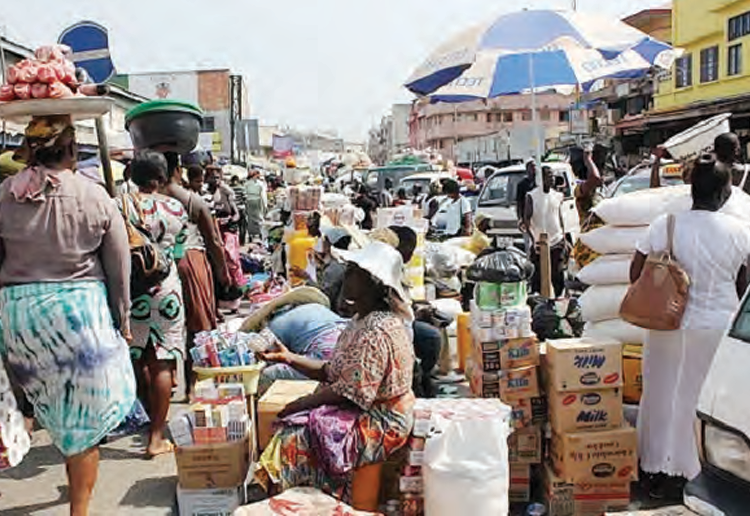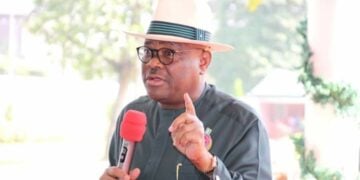Medical experts have revealed that more Nigerians are dying from ailments such as high blood pressure, diabetes, malnutrition-related diseases and road accidents.
They, however, disagreed on the factors responsible for the high death toll, which reportedly spiked last year following the introduction of drastic economic measures by the President Bola Ahmed Tinubu administration.
The economic reforms, described as “very painful,” included the removal of subsidy on petrol and the devaluation of the naira, which jerked up the prices of basic food items, transport fares and health services
While some of the experts blamed the high death toll on the current economic hardship in the country, others said there was no correlation
The experts, who spoke with LEADERSHIP Sunday in 13 states of the federation, included senior medical personnel of teaching and general hospitals, such as chief medical directors (CMDs), medical consultants, nutritionists, chemists and morgue attendants.
The investigation concentrated on teaching and general hospitals and a few private medical facilities in standard hospitals.
Most of the selected personnel work in facilities located in state capitals and semi-urban towns based on patronage, equipment and competence in handling diverse ailments.
Among the experts are the CMD of the University of Uyo Teaching Hospital (UUTH), Prof. EmemAbasi Bassey; a consultant physician at the Edo State Hospital Management Board, Dr Osagie Ebonwonyi; the permanent secretary and chief medical director of Sir Yahaya Memorial Hospital in Birnin Kebbi, Kebbi State, Dr Abubakar Zaki; an Enugu-based nutritionist, Mrs Gladys Umeh, and another physician, Dr Jude Agbugba.
They responded to questions on whether more Nigerians have died since the harsh reforms introduced by the present administration, which disease(s) caused most of the deaths and the patronage of their morgues.
Most of the officials refused to disclose the number of deaths they recorded during the period under review. Some said such figures were not suitable for public consumption, while others asked our correspondents to write formal letters to the management of their hospitals or the Ministry of Health.
They were, however, on the same page regarding the increasing number of deaths among Nigerians under the incumbent administration.
In Akwa Ibom State, checks revealed an increase in death rate in most tertiary and secondary hospitals, including UUTH, the General Hospital at Anua, and some private mortuaries.
Although Prof. Bassey noted that “there’s no hospital anywhere in the world that people don’t die,” it was gathered that due to the prevailing socio-economic challenges in Nigeria, the death toll had risen beyond normal in the state.
Bassey said medical infrastructure, including bed spaces at emergency and other wards, had been overstretched. He lamented that most deaths occur because of the people managing some ailments, adding that because of the economic situation, patients are sometimes brought in late to the hospital.
“Some of them are brought in but with no money to pay for drugs or even laboratory tests,” he said. According to him, poor funding had hampered the effective administration of services and expansion of medical infrastructure and hiring of professionals to cope with the influx of patients into the hospital.
Most of the deaths, he said, are from patients suffering renal failures, with many not able to afford the cost of weekly dialysis.
He explained that electricity had become a big challenge with the institution running on band ‘A’, but with low and inadequate subvention from the federal and state governments to run the hospital.
At Anua General Hospital, it was also gathered the death toll had risen as most of the patients die daily due to the cash crunch; many are said to resort to herbal treatment due to the inability to pay for conventional treatment at medical centres.
“We take in more dead bodies now than before because these hard times have drained people’s pockets to a point they cannot afford better treatment for their sicknesses,” Tony Nsudo, a mortuary attendant in a facility in Uyo, the state capital, told one of our correspondents.
Afiong Emma, a chemist and nutrition expert, blamed most deaths on a lack of adequate and functional intake of balanced diet
“Right now in most homes, we take what fills our stomach because that is what we can afford, not minding the fact that some foods are toxic to our system. These could contaminate and slowly kill our body tissues, and one day, you grind to a halt,” she explained.
Another health expert and nutritionist, Mrs Gladys Umeh, said the number of deaths had increased in recent times as a result of hardship.
Apart from deaths, Umeh stated that many people are suffering from mental related illnesses because of hardship.
“Yes, people have been dying since this hardship started because they don’t eat well as they don’t have the money. So, when people don’t feed well, they fall sick and when they don’t have money to buy drugs, you can imagine what will happen,” she stated.
Umeh advised the governments to declare a state of emergency in the health sector and provide free essential drugs for the people and food for the citizens to eat.
A morgue attendant at the Federal Medical Teaching Hospital, Owerri, Imo State said deaths under this administration had been on the increase on a daily basis.
A medical doctor, Dr. Jude Agbugba, said it was against their rules to disclose the ailments that killed most Nigerians.
He, however, said most patients die of kidney diseases and heart failure.
In his contribution, Dr. Harold Onumo explained that the prevailing situation of more mortalities happened in the present administration and one could situate it on the harsh economic realities facing the populace.
He advised the federal government to find a means to reduce the price of petrol as, according to him, “all the advanced countries we are imitating have basic infrastructure, incentives and organised welfare schemes for their citizens.”
In Benin City, Edo State, attendants at the state-owned Specialist Hospital morgue said most of the corpses were from accidents and illnesses and cannot be attributed to hardship alone.
A worker at the University of Benin Teaching Hospital morgue who craved for anonymity said the hospital received higher numbers of dead bodies from the state and other neighbouring states, adding that the issue of tying the increase in number of corpses to hardship was neither here nor there.
In his response, a consultant physician at the Edo State Hospital Management Board, Dr Osagie Ebonwonyi, posited that there was really no accurate correlation to prove that people were dying mainly because of hunger and other forms of hardship induced by the current economic crisis.
He said such reports or investigations require “painstaking analysis, dating back to many years before one can come up with a report that an increased number of corpses in morgues can be tied to hardship.
“Such an exercise is very difficult to prove that people are dying because of the poor economy; how are you going to do that? What is the correlation? What you need to ask is if people are dying as a result of famine. You need to show that there is famine in the land,” he said.
At two government hospitals visited by our reporter in Ilorin, Kwara State, it was difficult to obtain information on the death rates, but morgue attendants who pleaded anonymity said that there had been an increase in the number of corpses being brought into the morgues from outside the hospital in recent times.
A senior staff member of one of the hospitals corroborated the claims of the morgue attendants.
“There appears to be a rise in the number of corpses being brought from outside into the morgue of the public hospital since the removal of the fuel subsidy. This may be due to more deaths from poverty-related diseases and paucity of funds linked with inaccessibility to quality healthcare services,” he said.
“The most visible effect of the oil subsidy removal on hospital patients in Ilorin, the Kwara state capital, is a drastic reduction in the number of cases being recorded on a daily basis. Even where such cases are brought into the health facilities, they are always presented too late. This development could not be divorced from a spike in the costs of drugs and other consumables in the hospital,” he said.
In Niger State, there has been an increase in the number of sudden deaths linked to heart attacks.
It was also discovered that some of the patients were being treated for ailments associated with myocardial infarction. They start with high blood pressure and develop into serious ailments resulting in heart attack or stroke.
While some medical experts in public hospitals prefer to remain anonymous, it was learnt that cases related to cardiovascular infarctions had increased at the Minna General Hospital.
In Kaduna State, a majority of the patients found it difficult to pay hospital bills.
A visit to some public hospitals in Kaduna South indicated that some patients owed hospital bills as they struggled to cope with the current hardship.
At the General Hospital, Sabon Tasha, many of the patients complained of “no money to pay our bills.”
A staff of the General Hospital in Kakuri, who simply identified himself as Emma, said though there was an increase in the number of deaths, they were not solely from the prevailing hardship.
From the record obtained from the University of Maiduguri Teaching Hospital (UMTH) there was a slight decrease in the number of deaths in the past two years compared to this year.
For instance, while the hospital recorded 1,167 deaths in 2022 and 1,062 deaths in 2023, the figure was 873 deaths in 2024.
For the morgues, with Borno State being a predominantly Muslim state, a majority of the dead are buried immediately in the cemetery according to Islamic rites.
At the morgue of the Plateau State Specialist Hospital (PSSH), corpses are not allowed to be deposited in the facility for more than two weeks.
A mortuary attendant at the PSSH who did not want his name mentioned because he was not authorised to speak, explained that most of the corpses were victims of road accidents. Others, they were told, slumped and died,
The Abubakar Tafawa Balewa University Teaching Hospital refused to release data on the number of dead bodies deposited in its morgue in the last 12 months.
The spokesperson of the hospital said he needed approval from the CMD, Prof. Yusuf Bara, before releasing such data.
In Abia State, a health expert in a private health facility in Bende Road, in Umuahia the state capital, Jude Eke, expressed concern at the economic situation in the country.
He confirmed that the severe economic situation in the country could have serious health implications on the people, especially those with many financial responsibilities.
A medical practitioner, George Okere, said the situation can be handled by the government by implementing people-oriented policies and programmes.
The permanent secretary and chief medical director of Sir Yahaya Memorial Hospital in Birnin Kebbi, Kebbi State, Dr Abubakar Zaki, confirmed that patients were dying from accidents, diabetics and stomach upset.
Another set of patients who die often are pregnant women and children suffering from malaria and typhoid.
“I cannot precisely quote the actual number of deaths since the beginning of the present hardship because of the large number,” he said.
At the Kebbi Medical Centre, Kalgo, the officer in charge of birth and death registration , Malam Umar Abubakar, said the number of deaths in the hospital sometimes increases and decreases, adding that the records are usually high during the rainy and hot seasons due to malaria and meningitis.
For Dr Babatunde Kerim, a nutritionist, the rising death toll cannot be linked to the current hardship, but the lukewarm attitude of the people towards doctors’ instructions when they are sick.
There has been no significant increase in the number of corpses deposited in the morgue of Osun State Hospital, Asubiaro, Osogbo consequent upon the increase in fuel price by the federal government.
Though the hospital authorities denied LEADERSHIP Sunday access to the number of dead bodies deposited in the mortuary of the State Hospital, Asubiaro, Osogbo before and after the fuel price increase, a morgue attendant said there was no serious increase in the number of corpses brought into the facility.
However, a health personnel, Dr. Wale Adisa, who responded to questions from our correspondent admitted that there were more cases of people dying as a result of high blood pressure.
He noted that the increase in the pump price of petroleum products had effects on every sphere of human endeavours and can consequently impact negatively on the health of the citizenry and cause health hazards.
A visit to the morgue section of Abdullahi Wase Specialist Hospital, Kano (state teaching hospital), to ascertain the rate of deaths recorded in the hospital was unsuccessful as the correspondent was directed to the Servicom Unit, where the officials refused to disclose any information.
When the deputy chief medical director of the hospital was contacted, he requested an official letter through the Ministry of Health, citing the sensitive nature of the information sought.
We’ve got the edge. Get real-time reports, breaking scoops, and exclusive angles delivered straight to your phone. Don’t settle for stale news. Join LEADERSHIP NEWS on WhatsApp for 24/7 updates →
Join Our WhatsApp Channel










